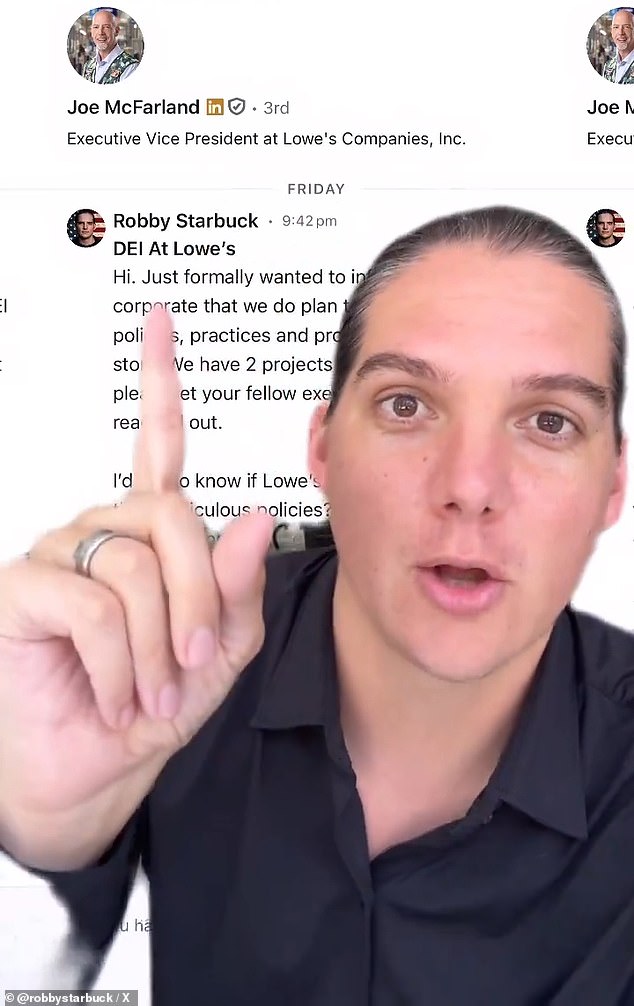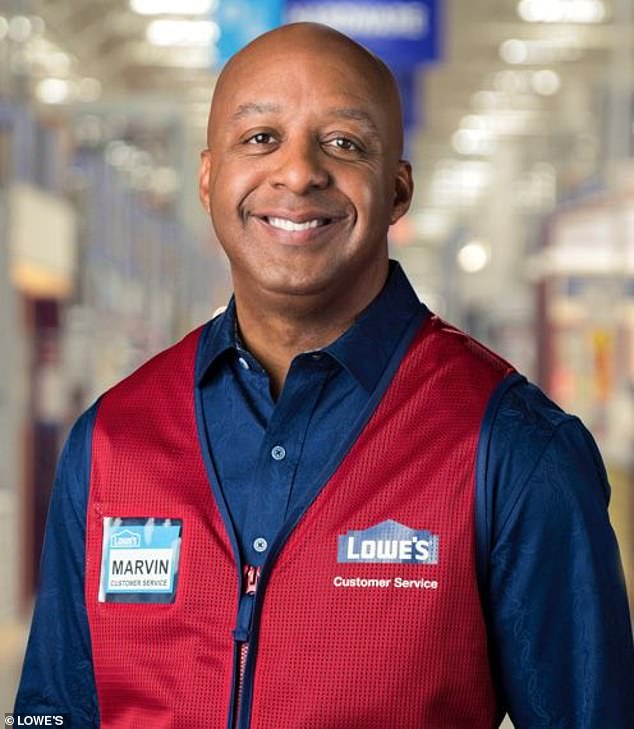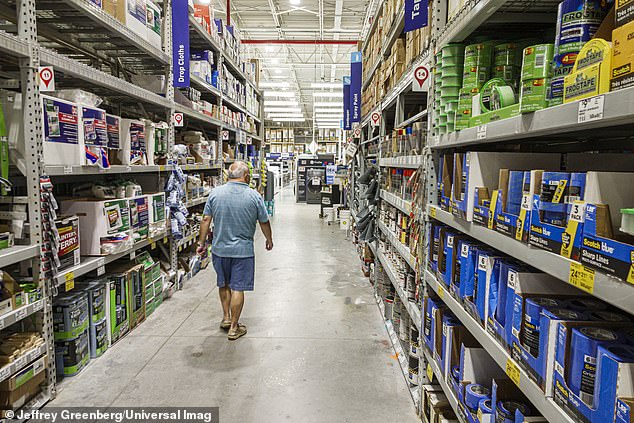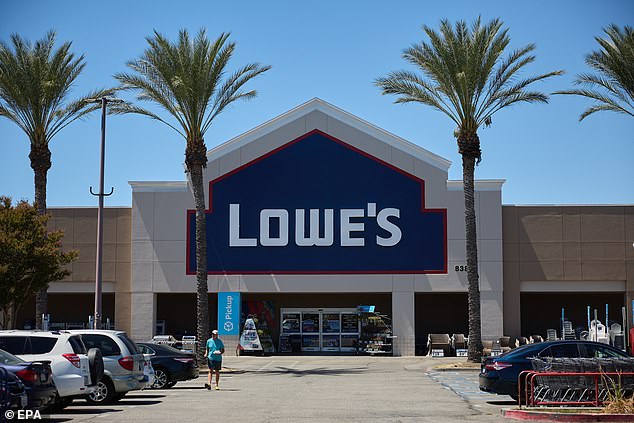Home improvement retailer Lowe’s has become the latest brand to drop its support for Pride events and other diversity, equity and inclusion (DEI) programs in the face of consumer boycotts.
Lowe’s will stop cooperating with the Human Rights Campaign, a leading LGBTQ group, and will no longer separate employees into so-called “resource groups” based on race, religion or sexual identities, according to an internal memo.
The company will also stop sponsoring parades, festivals or fairs and instead focus on events related to its business, such as affordable housing and skilled trades education, the memo says.
In recent weeks, Jack Daniel’s, Harley-Davidson, Tractor Supply and John Deere have all changed their stance on DEI amid anger from conservative consumers who reject progressive policies.
Lowe’s has scrapped much of its DEI work, according to an internal company memo with more than 1,700 stores, including this Los Angeles location.

Anti-DEI activist Robby Starbuck gets another scalp with Lowe’s retraction on Pride parades
Anti-DEI activist Robby Starbuck welcomed the move at X, saying Lowe’s had caved to pressure from consumers who reject “woke” and “ridiculous” diversity policies in corporate America.
“We are winning, and one by one, we will bring sanity back to corporate America,” said Starbuck, 35.
“Lowe’s says there could be other changes in the future, and there should be. They should eliminate their DEI team entirely.”
According to Starbuck, he reached out to Lowe’s last week and told the company he planned to target the home improvement giant over policies like its employee resource groups and donations to Pride events.
The company responded Monday with preemptive changes, the Tennessee-based Cuban-American activist said.
Lowe’s, a $42 billion company with nearly 300,000 employees at 1,700 locations, which is based in Mooresville, North Carolina, did not respond to The Mail’s request for comment.
But in a memo to employees Monday, its executives said that, like other companies, Lowe’s began reviewing its DEI policies in the wake of the Supreme Court’s June 2023 decision to end affirmative action in college admissions.
“We recently decided to combine our business resource groups, from individual groups representing diverse sectors of our associate population, into one umbrella organization,” the memo says.
‘In addition, we are no longer participating in the Human Rights Campaign’s survey process.’
Many companies that adopted DEI policies in the wake of the police killing of unarmed black man George Floyd in May 2020 have backed away from them for fear of angering conservative customers.

Marvin Ellison, the $18 million-a-year CEO of Lowe’s, is steering the retailer away from DEI

The $42 billion company has nearly 300,000 employees spread across 1,700 locations.
Some companies have received public letters from shareholders since 2021 indicating that their DEI plans constitute unlawful discrimination and violate directors’ duties to investors.
For some, DEI programs are important and necessary, as they can help overcome historical racism and sexism and make it easier for people of all backgrounds to advance in education and work.
Critics say it is a form of reverse discrimination that unfairly affects straight white men.
Others say that DEI plans may be well-intentioned, but they rarely achieve their desired goals and
that mandatory workshops on “microaggressions” and “white fragility” often make matters worse by fostering divisions in offices and classrooms.
An Ipsos poll conducted in April found that 61 percent of voters rated DEI as a “good thing.”
Still, a Gallup poll conducted around the same time found that only 38 percent of people wanted companies to take a stance on current events, a 10 percentage point drop from 2022.

